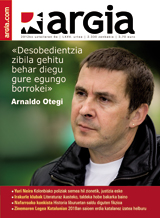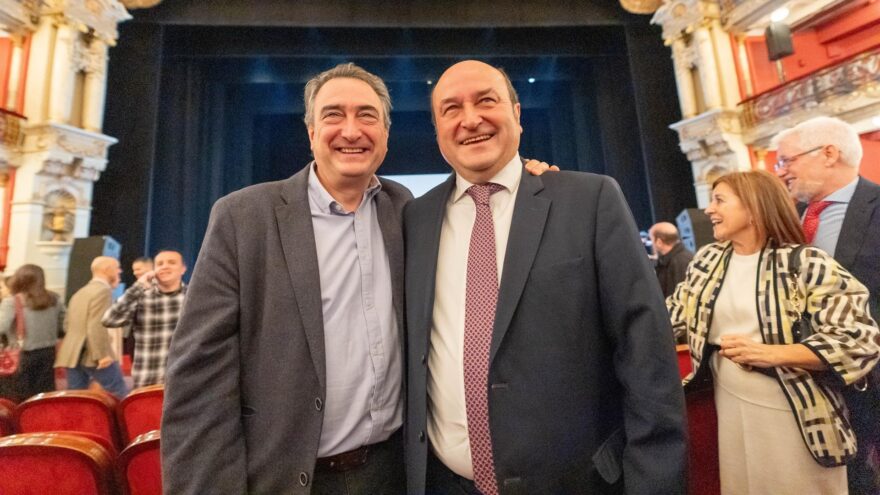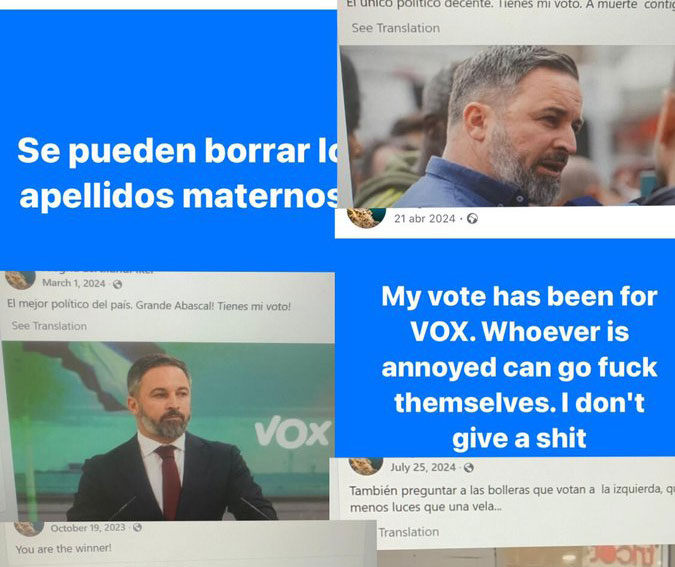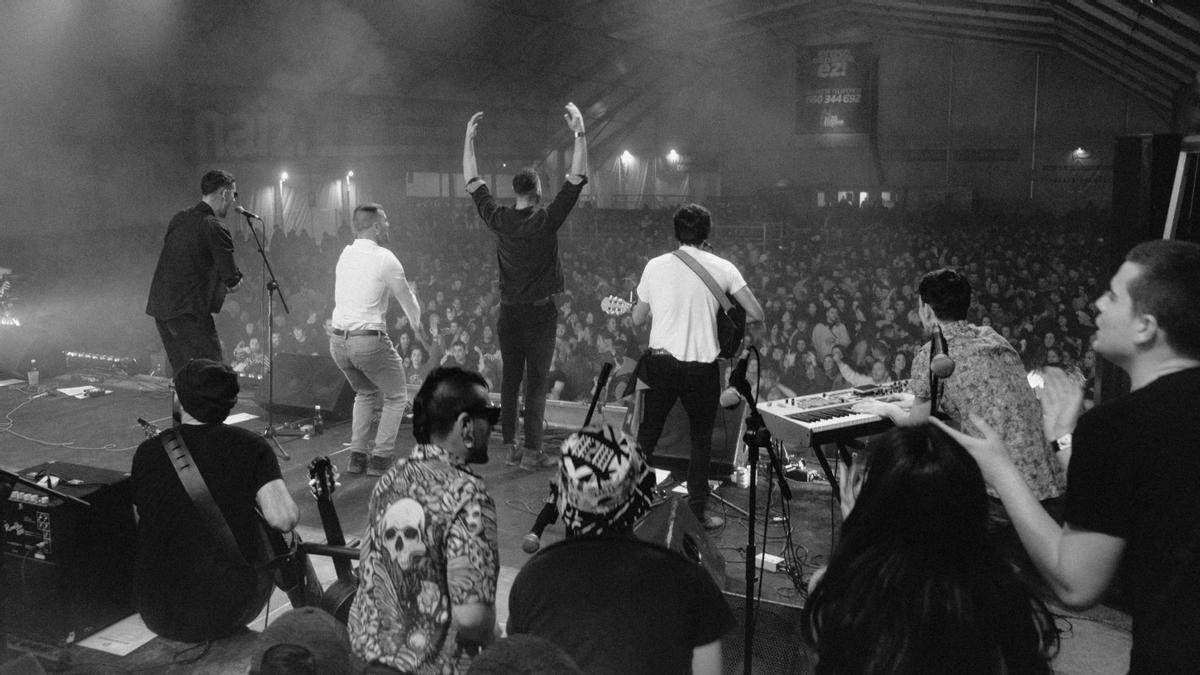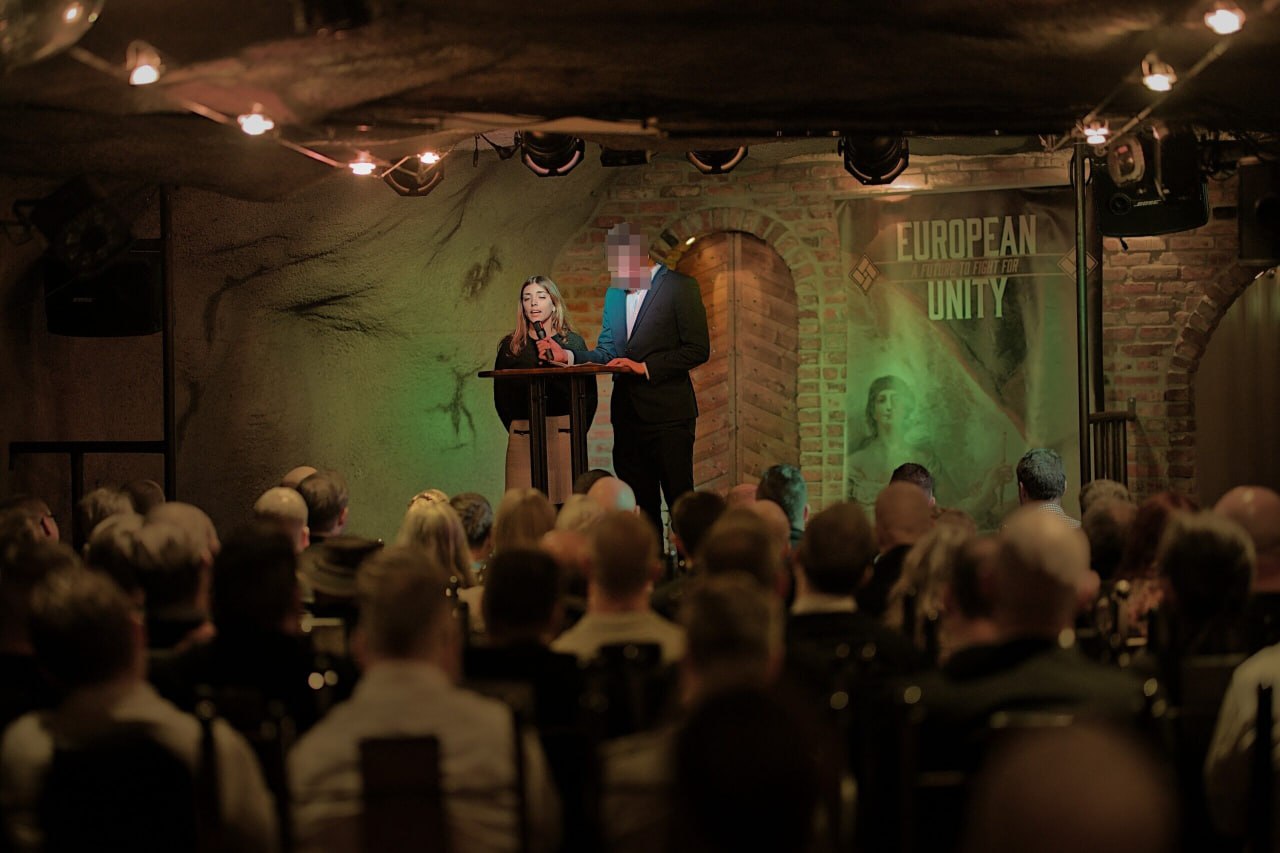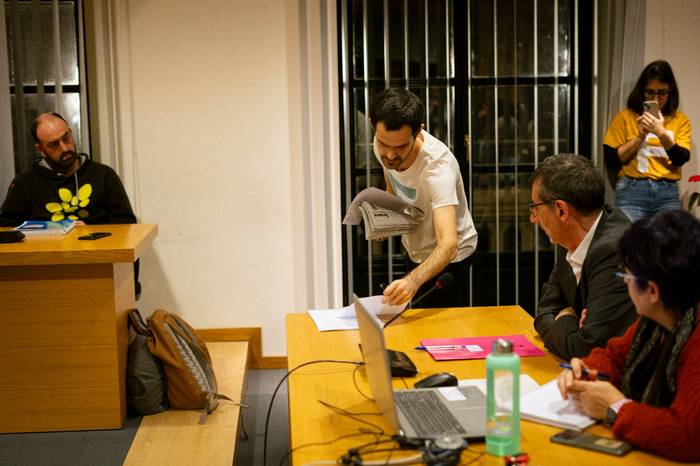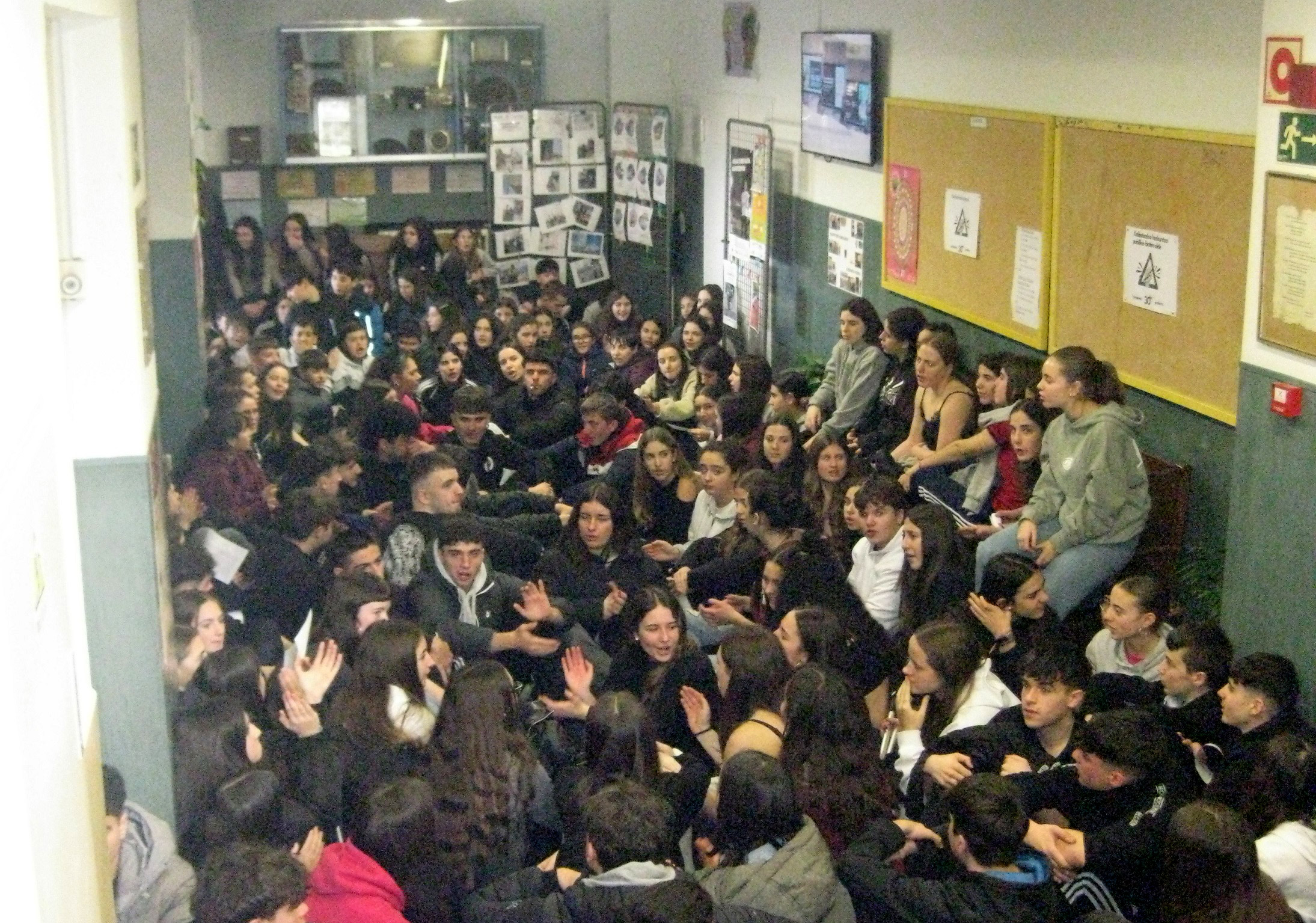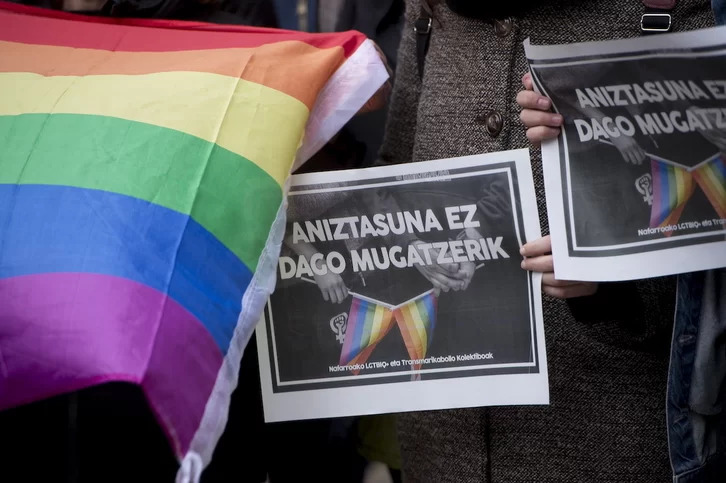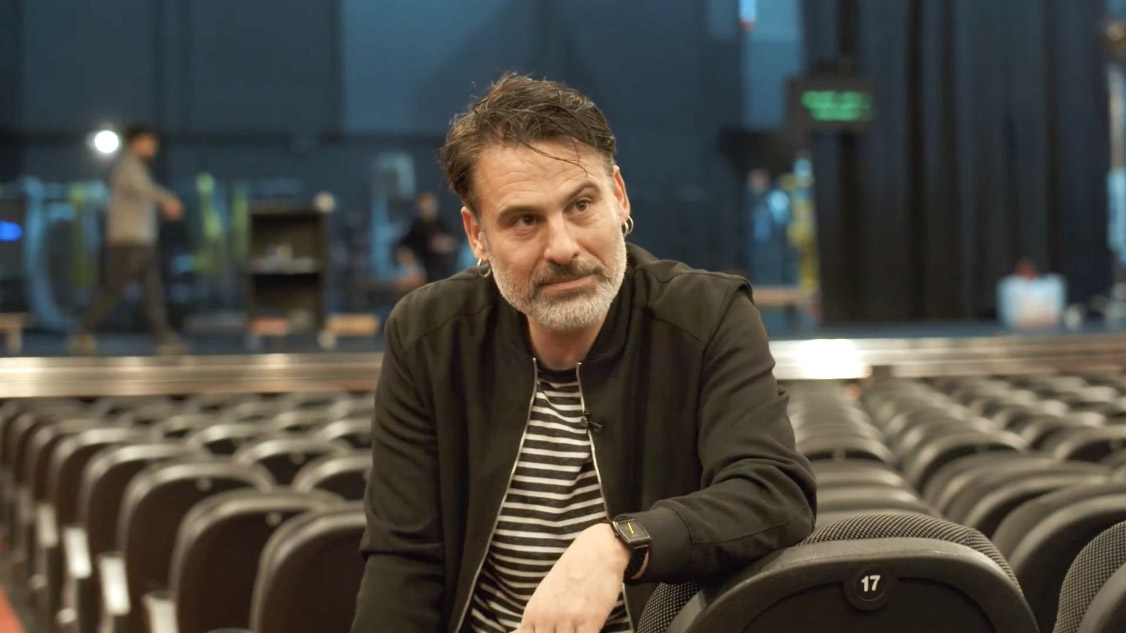"The great wineries are the company, not us, the peasants"
- The sweet breast comes from the grape heel. The grape heel, the vine, has put a microphone on us and brought to the surface stories that we could not imagine. Not everything has been a sweet breast.
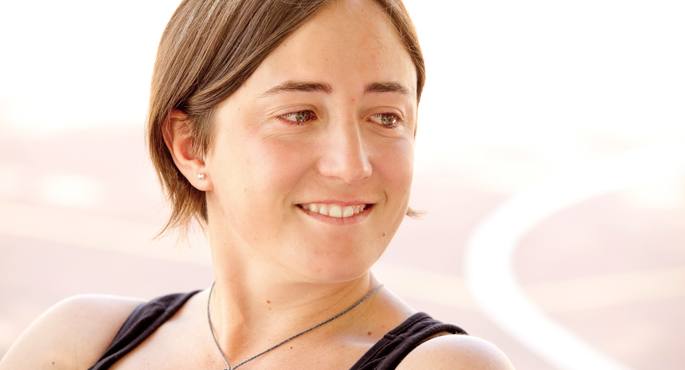
I come in the interview, Itxaso.
Do you understand me? Am I worth the interview?
Who is worth it?
It's not a regular person.
Do you think vulgar?
Yes.
We'll see. You are 28 years old, you are a farmer, working in the vineyards… Entrepreneur?
Only when I have debts. Ha, ha, ha.
It's time to have debts, to have crises and others.
Yes, but I'm free from it, I don't have any debts. On the contrary, the desire to spend money, to invest in the house hold, to reactivate the money. I have a lot of projects, not money for that. In our house we have a winery and a growing field, that is our heritage, including the tractor! We have a dozen acres between my brother and I. He is young and cannot work in the field. Every year we receive 50,000 grapes and make wine. We sell without packaging. Here too, I have a desire. We intend to start labelling next year. I also have a name, but you can’t publish it yet…
What will labelling bring you?
First of all, work. We don't know the money, the work is safe! But I have to try. Selling wine with labelling means increasing profit. Sold in bulk, the profit is small. But I've already told you, tagging means more work. And investments. Purchase a label design, packaging and labelling machine. I always work. Win, maybe. Look, I calculated that if I had 20 percent of the wine I made, I would have the same benefit as the remaining 80 percent. 20% in one, 80% in the other and win at par! Something needs to be done. Adults don't want to get into that mess. It's a job. Maybe you're tired. I'll tell you there are people who don't even make wine! Selling grapes to the large wineries. Work less, earn less.
Where have you learned to work as a farmer?
I haven't learned yet. I don't know. I'm learning.
[Tear down tears] What touched you? The names you're going to put when you label the wine?
Where we are as well.
That may have brought me here, to this portal of the ikastola, without my knowledge. I have to tell you. The ikastola de Lanciego was founded by his mother, Lurdes Arrieta, in the 1979-80 year. She was the first lady in the village. ==Death==He died in 2005 in a car accident along with two others from ikastola. Five years later, your father died of cancer at Felix Compañía. Your life was restored to you.
Completely. Now it's very different. We had no problem before. Better said, we had them, but they were taken by our parents. The responsibility was yours. We also left our fears in their hands. Now there's nothing like that. Now I carry all that: care, fear, care for the housewives, brother, grandpa, aunt... I am a patriarch. This situation hardens you a lot, but you just have a trusted friend next to you to cry. And yet, I'm glad to cry, I'm proud. What happened was, yes, an excellent mother, an excellent father, and I'm glad to cry. Even on the street, they will say: “Look, there goes the daughter of the moza!” And they're going to go to the next population and they're going to ask me. “And you, who are you from?”, “daughter of the Andereño and the servant.” They look at me and say, “Oh, what a pity!” I don't like any of that. I prefer others: “Go ahead, you’re brave!” When I decided to kill my father and start growing the vineyards, some of them: “But how are you going to grow your vineyards? How do you carry the tractor?” Now they tell me: “How well the tractor feels!” Or, “you go too fast!” or anything else. People!
“How well the tractor feels!”
When I had to take the tractor, I went to ask him: “Is a special permit needed to drive a tractor?” “None of that! If the men bring them, what need for a special permit!” they answered. And for the first time I picked up the tractor at the time of harvest. Forward and backwards. The drawing has the turtle and the hare, one to the front, one to the back. I started slowly. My uncle said, “You walk and don’t stop walking. For the harvest season, you’ll be ready.” What the hell! When I saw that I understood it, I started to do something. I took it when the harvest came.
You have the courage to work in the field.
It has to be done.
This will be your third harvest.
I say I started yesterday. Not long. The first time I just picked up the harvest. Last year I completed the whole process and this year I will have my first wine. I'm in it.
Do you like wine? His father didn't like it.
No, she doesn't. To me. Her mother wanted a white wine, a champagne, ha, ha. I like wine, both that of our house and that of others. I like to savor the other to improve our own. How many days he has had in the winery, more or less, has brought him so much taste… Wine is a world.
Before his father's death he was in Barcelona, immersed in the world of image, studying post-production.
Yes. I studied at the Andoain Film and Video School and went to Barcelona to expand my studies. I thought about my father's death: “What do I have to do now? Selling everything? Sell the 60-year-old vineyards? Don’t think about it!” and I decided to grow my vineyards. Pride, pride. Nobody forced me to do it, and I'm happy working as a farmer. The first year I tried. For example, it became difficult for me to prune the vine. “I’m wasting vine,” he said. Pruning and pruning I didn't think any of those vines came. But when they started giving her the leaf, I grew up, straightening me -- I was really surprised.
Who taught you how to prune?
Brothers. And his brother, the one who was a father. Like that. That's why I told you I'm still studying. My brother, when he prays, will be talking to me: In a “longer cut”, in another “shorter”. But I've learned that there's not the only way to prune. Each one has its own taste and measure. For example, my brother taught me and I have his school. Well, I've also gone to another school, to Laguardia, but what the theory says can't be put into practice. “You have to cut the vine at an angle of several degrees.” Say yes. But a multitude of vines in the vineyard, waiting for your rot, you have to cut half a dozen of them each, and you can go measuring the angle and cut it according to it. It is not possible. Siblings, grab the scissors and choke, clicking. It's a nice job. I am also my master. That also has its advantages. Even if they charge a little, I'm the owner.
Do you charge a little? Outside the rural world, wine and money are synonyms…
Yes, I'm told in Azpeitia: “The people of La Rioja live well!” To which I replied: “I don’t live well in La Rioja.” This is Álava!
And the wine here is not that of La Rioja, but that of Rioja Alavesa. What is the name account?
Before it was Logroño, now it is called the Community of La Rioja. There is a prize, La Rioja El Prestigio. The President of the Community of La Rioja, together with other representatives of Logroño, will attend the awards ceremony, together with the awarded person. From the C.A.P.V., representative of the Council of Álava, on public representation. We are nothing in Madrid either. When money is needed, they are asking the Basque Government! They're the first to pay.
I have been aware that Itxaso, a 28-year-old farmer, has been at Compañía Arrieta, in Vitoria, at the union meeting.
I walked in where I could. I think I had to get in. It is up to young people to move. We seem to live well, but we don't. We charge what we charge… I don’t know how the burned tractors are not on the edge of the road! We need the little money we make to correct the vines next year. The large wineries are narrowing and squeezing the peasants, saying “You will choke you!” but without choking you entirely. We're forced to work for them, let's say, we get paid little. That's why I got into the union. I am a representative of the Rioja Alavesa Wine Regulatory Council, I am a member of the Committee on Development, and I attend the meeting on numerous occasions. These meetings are held in Laguardia. I also go to Vitoria-Gasteiz, be it Rural Action or UAGA… But I have noticed that they are adult farmers of those organizations and I want to work with young people. And I'm working on a platform. Independent Platform of Young Farmers of Rioja Alavesa. We've come together with some friends and we're going to start working.
Do you have different sensitivities between each other, adults and young people?
Young people work at the mercy of their parents. Parents see nothing more than day-to-day. Take what the great wineries give them and live. The young person does not have the slightest chance of deciding. Everything is in the hands of the parents. In the vineyards there are still many older people, and it is not easy to move them. And as long as the father pays the offense to his son, he has no choice. The situation is not good, and if the account is not moved now, it will not be good for the farmer, I mean.
What do you say about the Basque farmer, about yourself? Azpeitiarra loves, first andereño of the ikastola of Lanciego, born there, member of a generation that also knows Euskera in Rioja Alavesa...
Many wouldn't believe it. That's where many are taking out language profiles like EGA. There's a lot of my crew. We're not used to talking in Euskera, it's true, unless there's some young professor coming out with us to work at the ikastola, or something like that. There we're going to take half a dozen people, in Basque, in Lanciego.
Does it see a lot of farming time in Lanciego?
Yes. This will be my life. Farmer. Entrepreneur? The word company takes away the charm of our work. I prefer to be a farmer. They're great wineries, not us, farmers.
Itxaso Compañon Arrieta (Lantziego, 1984). Nekazaria. Jaioterrian egin zituen lehen ikasketak, eta Lapuebla Labarkako Assa Ikastolan batxilergoa. Andoaingo Bideo eta Zine Eskolan izena eman eta egin zituen han bi urteko ikasketak, eta handik Bartzelonara jo zuen, postprodukzioa lantzeko asmotan. 2005ean, Lurdes Arrieta amaren heriotza, auto istripuan. Handik bost urtera, 26 urte Itxasok eta film batean lanean Almerian [Espainia], aitaren gaixotasunaren albiste. 2010ean hil zen Felix Compañon, aita. Gurasoak sasoiz hilak, mahastietara bidea hartu zuen, arbasoen legean, eta era berean, nekazari eskolan ikasitakoak azpikoz gora jartzeko duen premian.
Lehenbizi, Lurdes ezagutu genuen, ama, andereño Lantziegoko ikastolan. Hantxe egin zuen senarra, Felix. Ondoren, haien seme-alabak, Itxaso eta Unai. Ikusten ditugunero, haien baitan bizirik ditugu hala Lurdes nola Felix. Jende maitagarria gurasoak, eta maitasun horixe dute ematen, eta hartzen, Itxasok eta Unaik. Ore bereziko lantziegotarrak.
Vagina Shadow(iko)
Group: The Mud Flowers.
The actors: Araitz Katarain, Janire Arrizabalaga and Izaro Bilbao.
Directed by: by Iraitz Lizarraga.
When: February 2nd.
In which: In the Usurbil Fire Room.









